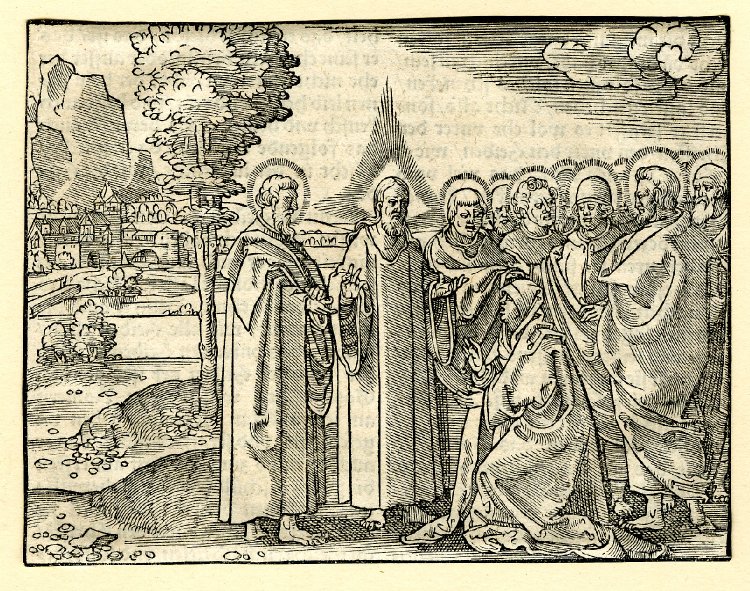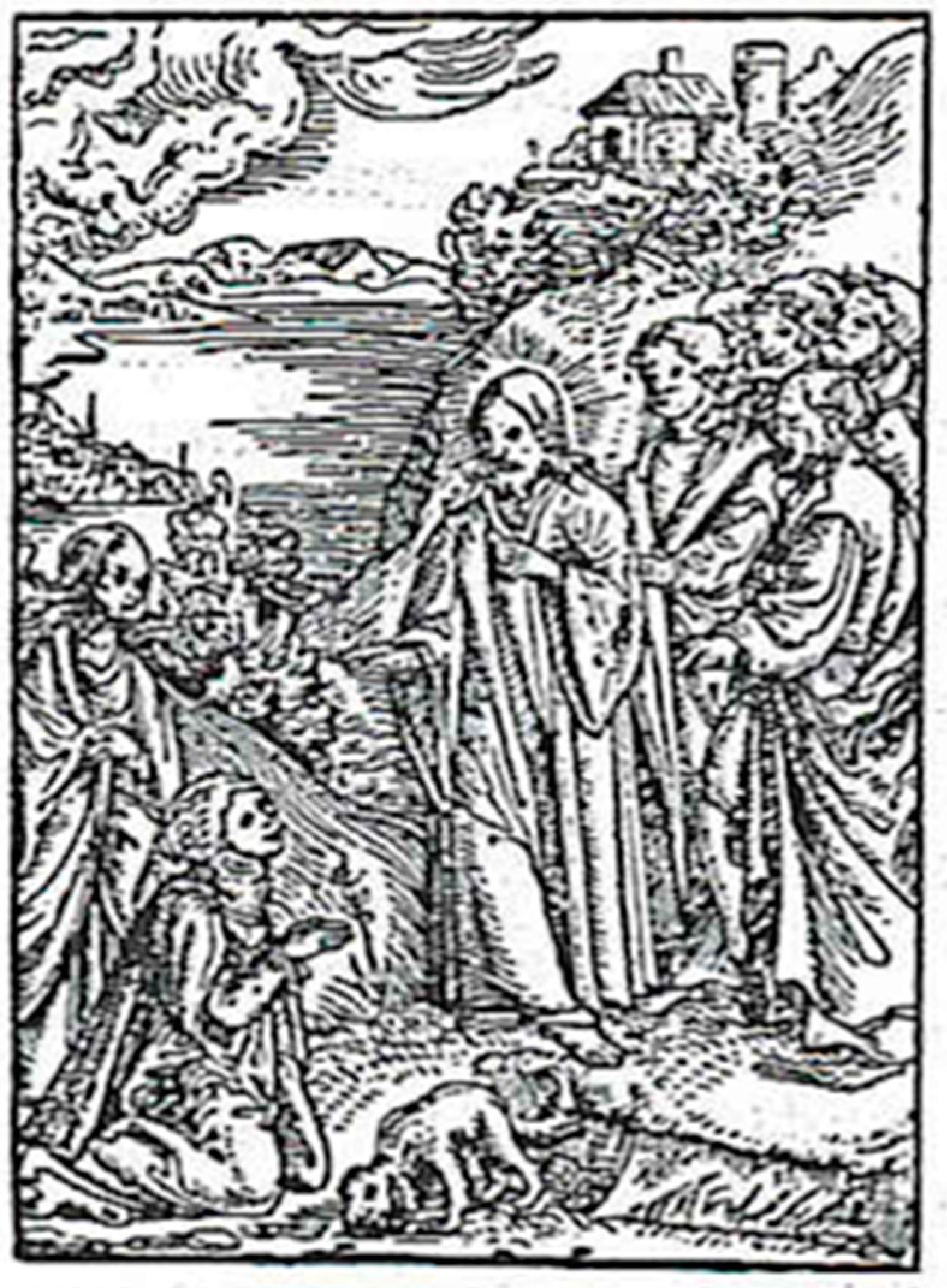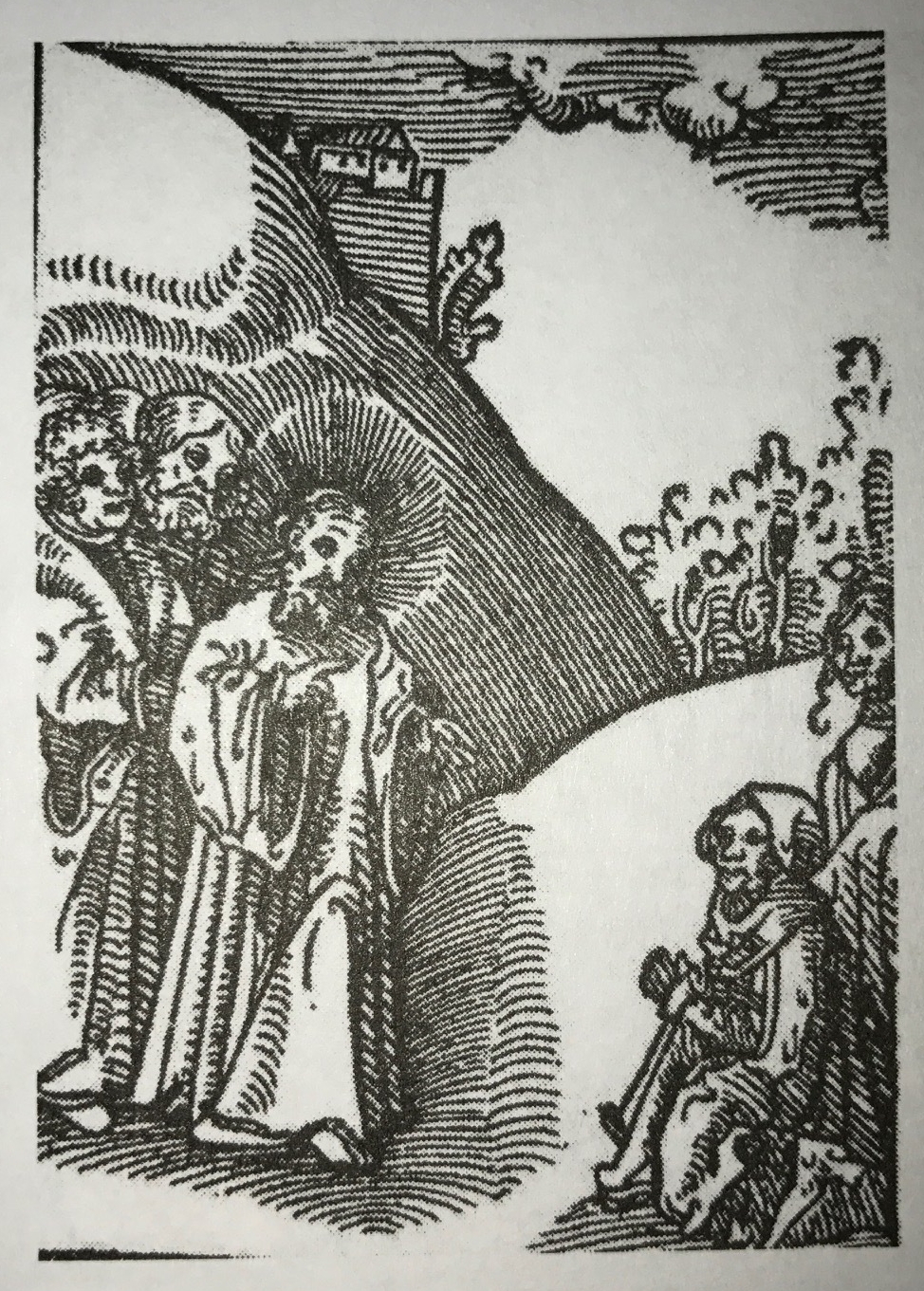Lectionary 20 A
Huh. We've come upon a section of Romans that isn't highly cited in The Book of Concord. Granted, the way the preicope is structured, we're skipping seven citations of other verses in Romans 11, but still...
Romans 11:1-2a, 29-32
For God has imprisoned all in disobedience so that he may be merciful to all.
-- Romans 11:32
Verse 32 is quoted in Formula of Concord, in both the Epitome and the Solid Declaration, Article 11: Election. In the Epitome, verse 32 is the first part of Affirmative Thesis 9 (FC, Ep 11.10), and in the Solid Declaration it comes as part of the argument that the proclamation of the gospel is for everyone (FC, SD 11.28). The point is clear is both citations: God wants everyone to be saved.
Matthew 15:[10-20]21-28
[Jesus said,] "...it is not what goes into the mouth that defiles a person, but it is what comes out of the mouth that defiles."
-- Matthew 15:11
Verse 11 is quoted in The Augsburg Confession, Article 26: Distinction among Foods (AC 26.23) as part of the argument that establishing fasting or other particular schedules around when to eat what kinds of food as a way of earning forgiveness or as a sign of being a Christian isn't just establishing a new law, but directly contradictory to the gospel!
Verse 11 is also quoted in Apology of the Augsburg Confession, Article 28: Ecclesiastical Power (AP 28.7) to show "that human traditions are pointless as acts of worship and therefore that neither sin nor righteousness ought to be connected with food, drink, clothing, and similar matters. Christ wanted to leave their use free...".
[Jesus] answered, “Every plant that my heavenly Father has not planted will be uprooted. Let them alone; they are blind guides of the blind. And if one blind person guides another, both will fall into a pit.”
-- Matthew 15:13-14
Verses 13 and 14 are quoted in rapid, if inverted, succession in The Augsburg Confession, Article 28: The Power of Bishops/The Church's Power (AC 28.47-48) to point out that the establishment and enforcement of humanly devised and created practices and requirements is against God's will, and we know this because Jesus specifically called out the Pharisees for doing just this.
Verse 14 is also cited in a footnote to the Preface of the Book of Concord (BoC, Preface.20, n. 37) that hints at an interesting story. As the Book of Concord is being presented, the subscribers want people to know why they're presenting it and how they intend it to be used. The section with the footnote reads:
As, then, it is the obligation of theologians and ministers of the church to remind and warn those who err naively and ignorantly about the danger to their souls (lest one blind person is led astray by another), for this reason we also herewith testify in the presence of almighty God and the whole of Christendom, that it is not at all our disposition or intention to cause any hardship for or persecution of poor, oppressed Christians by this Christian accord.
-- Book of Concord, Preface.20
The parenthetical phrase has the footnote attached to it letting us know that this passing reference to verse 14 "was added at the insistence of Duke Julius III." There's a story there...
Verse 19 is quoted in Formula of Concord, Epitome, Article 1: Original Sin, Negative Thesis 11 (FC, Ep 1.21) as part of five negative theses that are set forth to strive against the idea that original sin is somehow part of what it means to be created human rather than something that has corrupted our humanity as God created it. The chief concern is that if being human means being sinful, then God created us as sinners (cf. FC, Ep 1.2), Jesus became a sinner when he became fully human or became something other than human (cf. FC, Ep 1.5), and that Jesus somehow redeems original sin in a way that we are still sinners in eternity (cf. FC, Ep 1.6). For the philosophers, the line being draw is the line between the substance and accidents of humanity (cf. FC, Ep 1.23-25).



Verses 21-28 inspired several woodcuts published in different versions of The Small Catechism, The Lord's Prayer, The Seventh Petition (SC 3.19, n. 75), which puts a fascinating spin on, "deliver us from evil."
TheoThru
At play here is the difference between human-created ecclesiastical practices that work toward salvation and God's pronouncement of grace. We have to assume that Jesus knew Isaiah 56:8, but also knew the faith of this woman. We have here Jesus making an argument about the Messiah that would have made sense to his Jewish followers--that the Messiah is for the Israelites--but challenging the extent of that understanding in the remarkable faith of a woman who is descended from the very people the Israelites were supposed to kill so they could settle in the promised land. Who decided that the Messiah was only supposed to be for the Israelites? It wasn't God--see Isaiah 56:8.
How do our own expectations of God diminish our ability to see what God is up to?
How has God surprised you by showing mercy to someone other than yourself who you didn't think deserved it?
